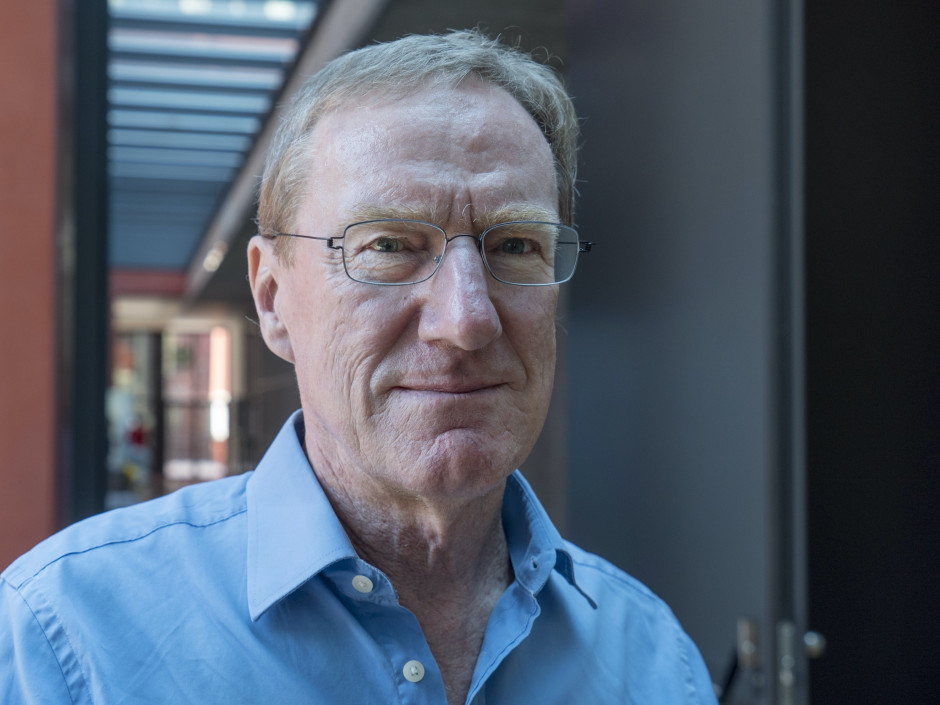The nation-state is dead. Long live the nation-state
The integrity of the nation-state has disintegrated under the pressure of the world’s economic system. For Michael Keating, a politics professor at the University of Aberdeen, this economic ‘rescaling’ of the nation-state has been shifting national identity and reshaping the nationalist movement in Scotland. And then Brexit came along… Keating was one of 13 experts who shared their thoughts at Eurac Research’s Summer School on Human Rights, Minorities and Diversity Governance, which finished up on June 29th.
How are ideas of nations, nationalism, boundaries changing in Europe?
There has been a tendency in the past to think of the nation-state as having set boundaries—a shared national identity, a state with sovereignty over internal matters, a national economy, and so forth. The aspiration of nation builders was to get all those things to correspond. That’s become much more difficult nowadays as economies escape state boundaries. Now we talk about global production chains, continental economies, corporations that work transnationally. At the same time, the economy is localizing because local factors are critical in determining prosperity. Economies are spilling above and below the state, and supranational and subnational identities are no longer corresponding with the nation-state. This is what we call, “rescaling”.
How has “rescaling” affected nationalism in Europe?
Nationalist movements have latched onto it because rescaling is always political: it covers the spectrum, from the far left to the far right. There are winners and losers when it comes to European integration, global free trade and local economies. When these boundaries shift, winners and losers within those boundaries change. Nationalists who push for new states within existing states will say, “Not only has the existing state failed to recognise our identities, but it is functionally inefficient, as well.”
But these independence movements are still about dividing. Does that not harken back to the old days of the nation-state?
Many nationalists would argue that they are not setting up a smaller version of a nation-state, but that the model of the nation-state is no longer appropriate. They would say, “We operate in a multilevel system and we recognize this better than the state-level does. We don’t want our new state in the old-fashioned sense. We are going beyond that. We want a capacity to operate at multiple levels. We like sharing sovereignty.” In the case of Scotland, independence means sharing the British pound and all kind of institutions with the UK. That’s what I call the “post-sovereignty” argument. Independence is not what it used to be.
Economies are spilling above and below the state, and supranational and subnational identities are no longer corresponding with the nation-state. This is what we call, “rescaling”.
How is Brexit changing the post-sovereigntist movement in Scotland?
Brexiters voted by and large to bring all the sovereignty back to one place, to Westminster. But those powers don’t belong only to Westminster—they belong to the Scottish Parliament and the Welsh Assembly and the Northern Ireland Assembly, as well. People in England think it’s a unitary state, but it’s not—it’s a quasi-federal state, it’s a complex pluri-national union. If you think of the UK as an asymmetrical federation, a work-in-progress that is constantly being renegotiated—this is exactly what the European Union is like. That’s why Scotland’s position in the UK fits very well into the EU. But the way out of the Scottish dilemma—the “let’s-go-independent-and-remain-in-the-EU’ approach”—is looking difficult today, politically. Scotland trades four times as much with England as with the rest of the UK. If there is to be a hard border between England and Scotland, that’s a hard sell for Scottish voters. The majority of Scottish voters want to stay in both the UK and the EU. They don’t want to come out of the UK union and go into the EU, if that means cutting themselves off from the UK market.
Michael Keating is a Fellow of the Royal Society of Edinburgh, British Academy, Academia Europea and Academy of Social Sciences. Recent publications include The Independence of Scotland (Oxford University Press, 2009), Rescaling the European State (Oxford University Press, 2013) and the edited volumes Debating Scotland (Oxford University Press, 2017) and A Wealthier, Fairer Scotland (Edinburgh University Press, 2017).
Eurac Research and Territorial Autonomies
Eurac Research carries out studies on Cultural and Territorial Autonomy (CUTE Autonomy) through the Institute for Minority Rights. This project studies both non-territorial autonomy arrangements and systems of territorial governance at sub-state levels in a comparative perspective. CUTE Autonomy seeks to create a comprehensive collection of case studies at world-autonomies.info.
Related Articles
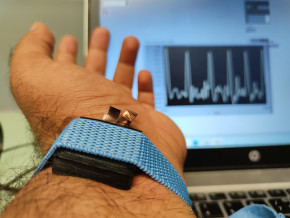
Tecno-prodotti. Creati nuovi sensori triboelettrici nel laboratorio di sensoristica al NOI Techpark
I wearable sono dispositivi ormai imprescindibili nel settore sanitario e sportivo: un mercato in crescita a livello globale che ha bisogno di fonti di energia alternative e sensori affidabili, economici e sostenibili. Il laboratorio Sensing Technologies Lab della Libera Università di Bolzano (unibz) al Parco Tecnologico NOI Techpark ha realizzato un prototipo di dispositivo indossabile autoalimentato che soddisfa tutti questi requisiti. Un progetto nato grazie alla collaborazione con il Center for Sensing Solutions di Eurac Research e l’Advanced Technology Institute dell’Università del Surrey.
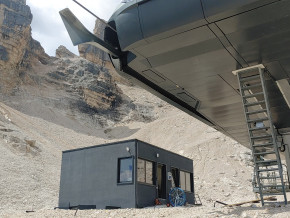
unibz forscht an technologischen Lösungen zur Erhaltung des Permafrostes in den Dolomiten
Wie kann brüchig gewordener Boden in den Dolomiten gekühlt und damit gesichert werden? Am Samstag, den 9. September fand in Cortina d'Ampezzo an der Bergstation der Sesselbahn Pian Ra Valles Bus Tofana die Präsentation des Projekts „Rescue Permafrost " statt. Ein Projekt, das in Zusammenarbeit mit Fachleuten für nachhaltiges Design, darunter einem Forschungsteam für Umweltphysik der unibz, entwickelt wurde. Das gemeinsame Ziel: das gefährliche Auftauen des Permafrosts zu verhindern, ein Phänomen, das aufgrund des globalen Klimawandels immer öfter auftritt. Die Freie Universität Bozen hat nun im Rahmen des Forschungsprojekts eine erste dynamische Analyse der Auswirkungen einer technologischen Lösung zur Kühlung der Bodentemperatur durchgeführt.
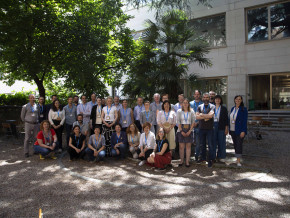
Gesunde Böden dank Partizipation der Bevölkerung: unibz koordiniert Citizen-Science-Projekt ECHO
Die Citizen-Science-Initiative „ECHO - Engaging Citizens in soil science: the road to Healthier Soils" zielt darauf ab, das Wissen und das Bewusstsein der EU-Bürger:innen für die Bodengesundheit über deren aktive Einbeziehung in das Projekt zu verbessern. Mit 16 Teilnehmern aus ganz Europa - 10 führenden Universitäten und Forschungszentren, 4 KMU und 2 Stiftungen - wird ECHO 16.500 Standorte in verschiedenen klimatischen und biogeografischen Regionen bewerten, um seine ehrgeizigen Ziele zu erreichen.
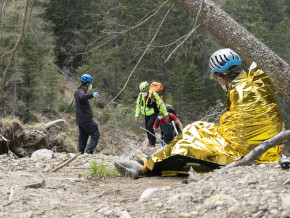
Erstversorgung: Drohnen machen den Unterschied
Die Ergebnisse einer Studie von Eurac Research und der Bergrettung Südtirol liegen vor.
